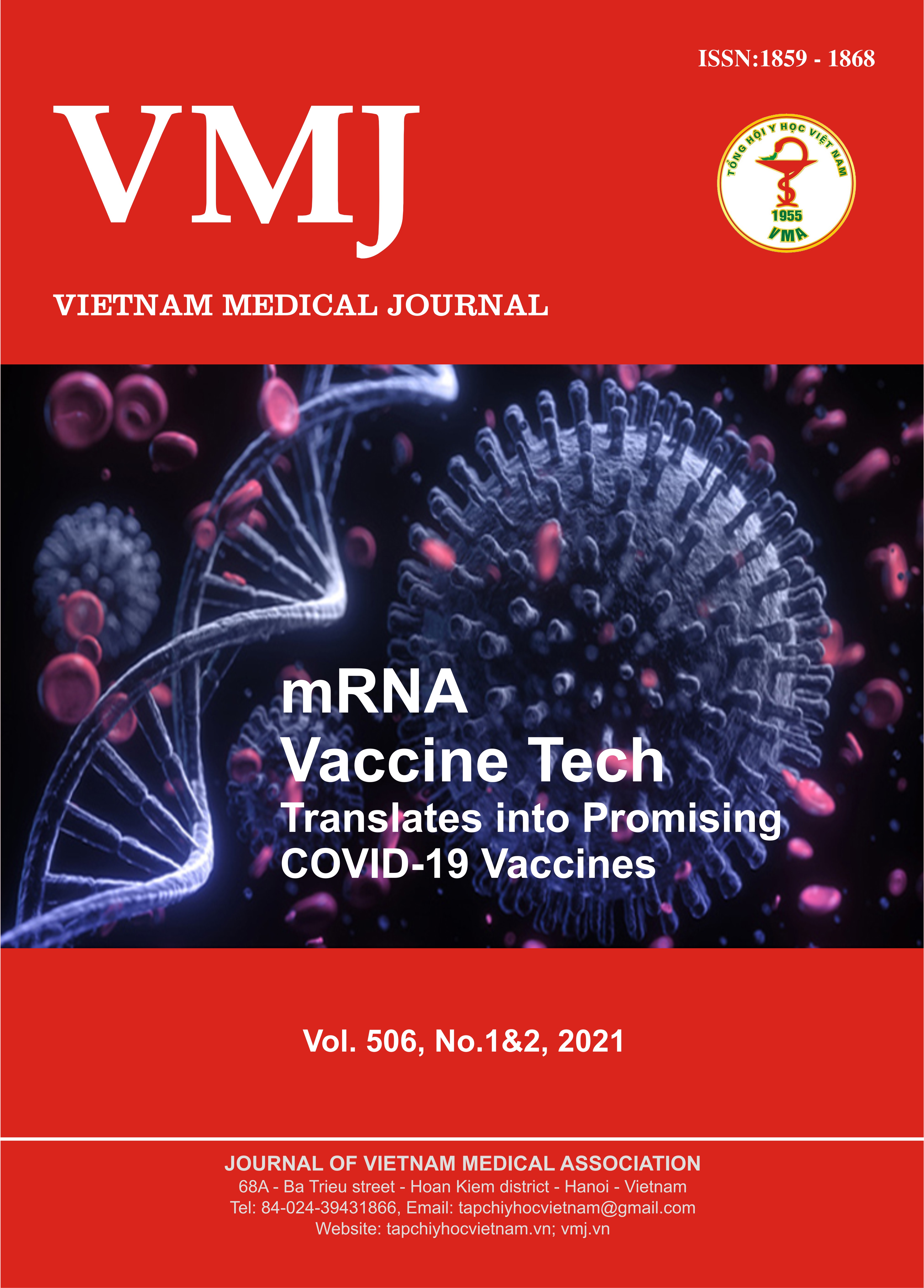ACUTE MYELOID LEUKEMIA AFTER CHEMOTHERAPY: REPORTING CLINICAL CASE SERIES IN THE DEPARTMENT OF CHEMOTHERAPY - CENTER OF ONCOLOGY - 103 MILITARY HOSPITAL AND RETROSPECTIVE LITERATURE REVIEW
Nội dung chính của bài viết
Tóm tắt
Recently, Secondary cancers, particularly acute myeloid leukemia after chemotherapy have been significantly concerned. Our team at the Department of Chemotherapy - Center of Oncology - 103 Military Hospital reports clinical case series diagnosed with acute myeloid leukemia after breast, colon, stomach cancer treatments and retrospective literature review.
Chi tiết bài viết
Tài liệu tham khảo
1. Damodaran S et al (2012) “Acute myeloid leukemia secondary to oxaliplatin treatment for esophageal cancer” Clin Colorectal Cancer. 11:151-154
2. Godley LA, Larson RA (2008) “Therapy-related myeloid leukemia” Semin Oncol; 35: 418-29
3. Morton LM et al (2018) “Association of Chemotherapy for Solid Tumors With Development of Therapy-Related Myelodysplastic Syndrome or Acute Myeloid Leukemia in the Modern Era” JAMA Oncol. doi: 10.1001
4. Zhang YC, Zhou YO, Yan B, et al (2015) “Secondary acute promyelocytic leukemia following chemotherapy for gastric cancer: A case report” World J Gastroenterol; 21: 4402-7
5. Zübeyde Nur Özkurt et al (2018) “Capecitabine Induced Therapy Related Acute Myeloblastic Leukemia with t(10;11) (q22;q23) in a Patient with Breast Cancer” Gazi University Faculty of Medicine, Department of Hematology, Ankara, Turkey
2. Godley LA, Larson RA (2008) “Therapy-related myeloid leukemia” Semin Oncol; 35: 418-29
3. Morton LM et al (2018) “Association of Chemotherapy for Solid Tumors With Development of Therapy-Related Myelodysplastic Syndrome or Acute Myeloid Leukemia in the Modern Era” JAMA Oncol. doi: 10.1001
4. Zhang YC, Zhou YO, Yan B, et al (2015) “Secondary acute promyelocytic leukemia following chemotherapy for gastric cancer: A case report” World J Gastroenterol; 21: 4402-7
5. Zübeyde Nur Özkurt et al (2018) “Capecitabine Induced Therapy Related Acute Myeloblastic Leukemia with t(10;11) (q22;q23) in a Patient with Breast Cancer” Gazi University Faculty of Medicine, Department of Hematology, Ankara, Turkey


